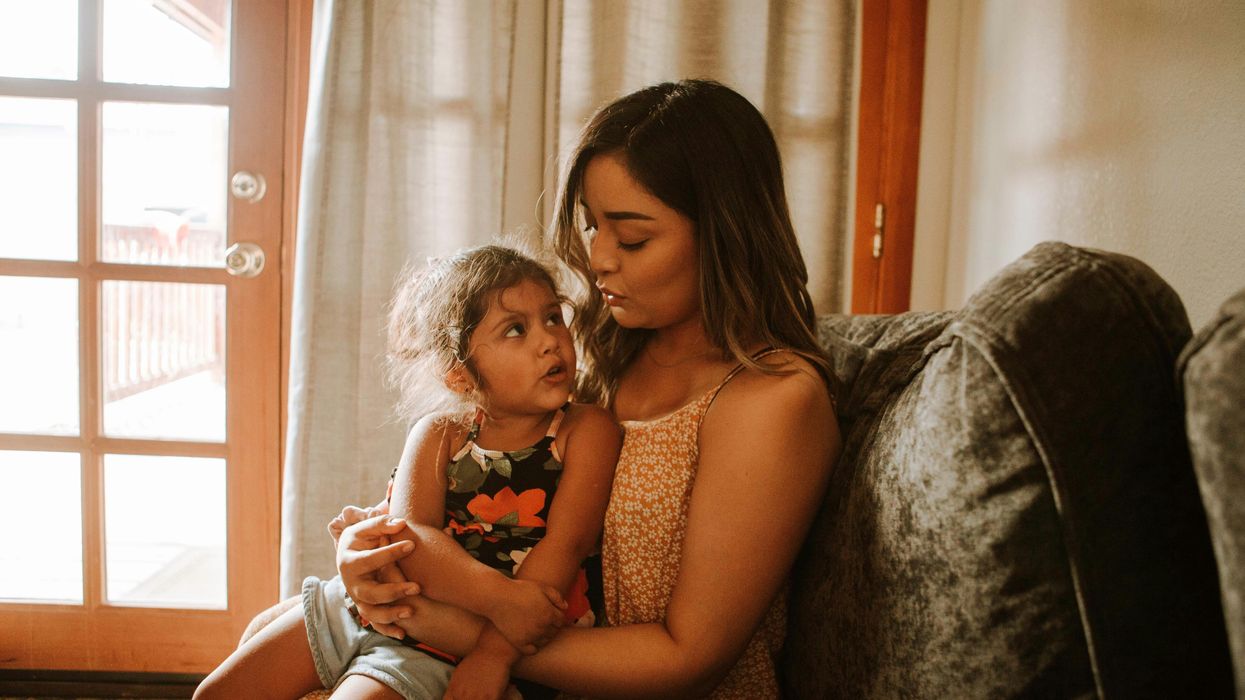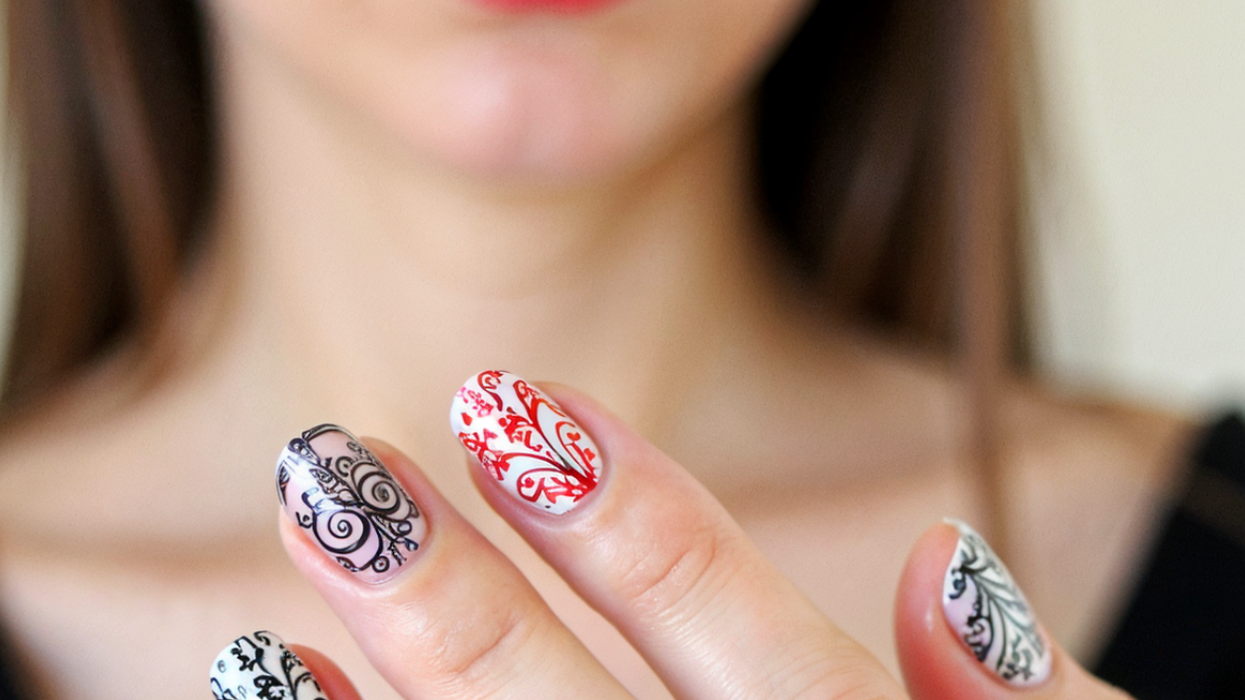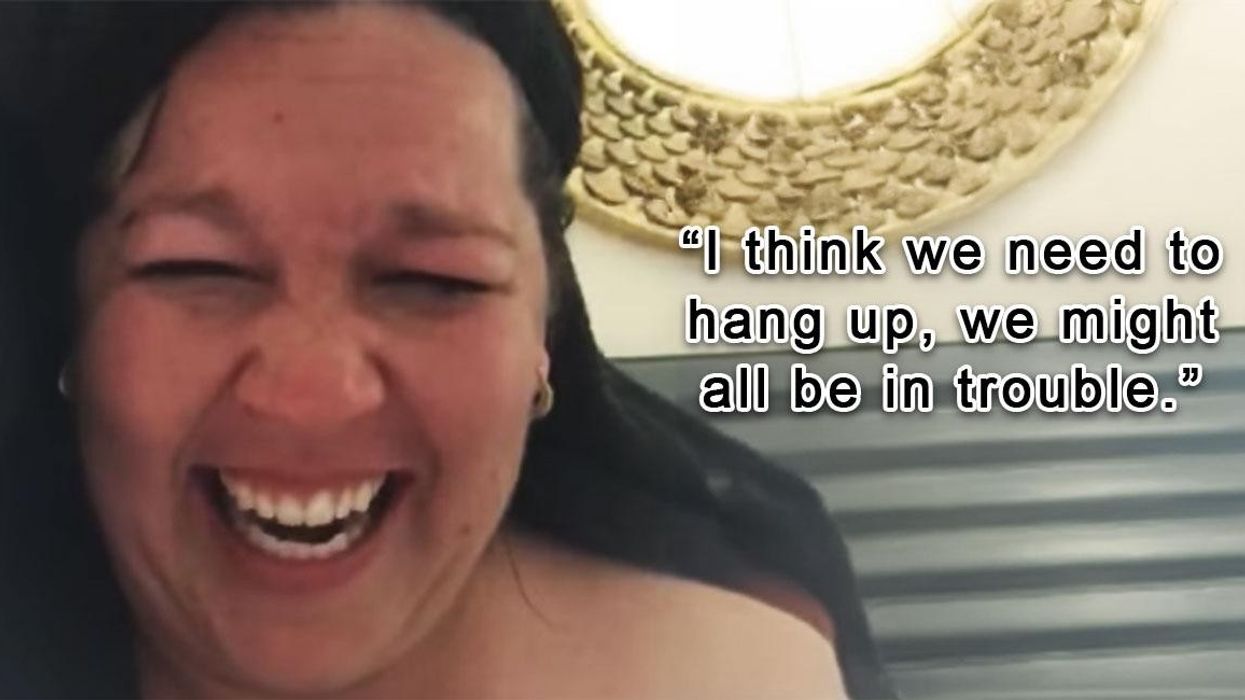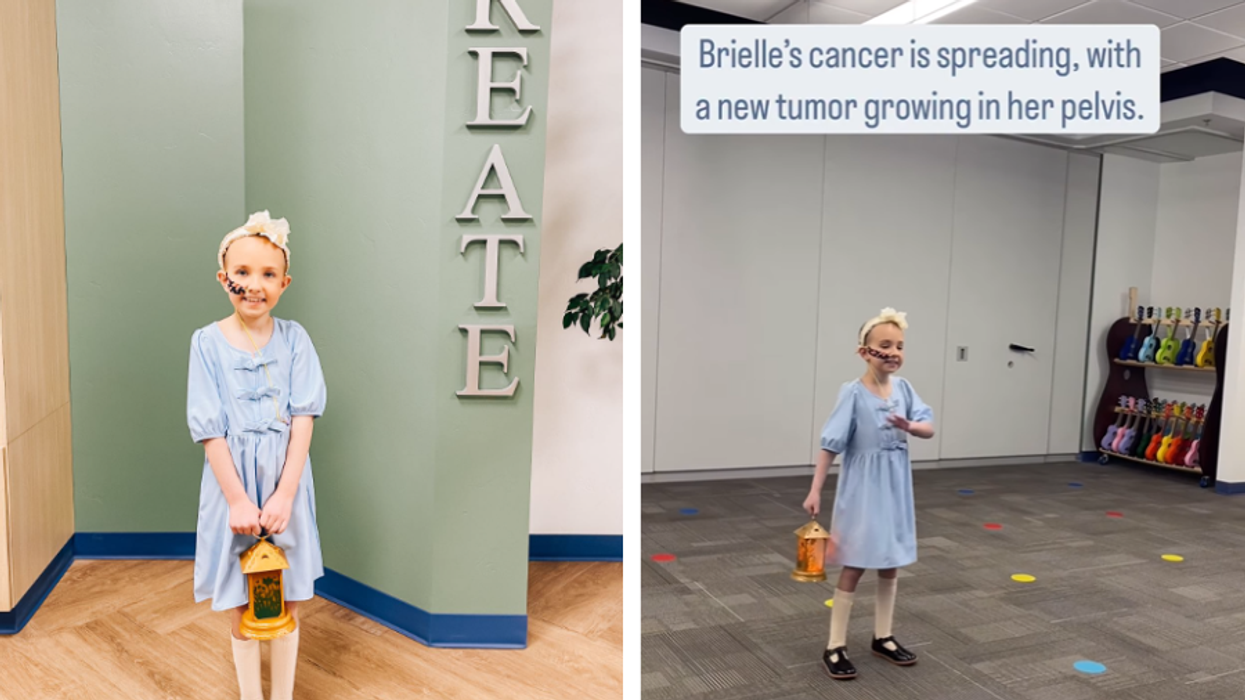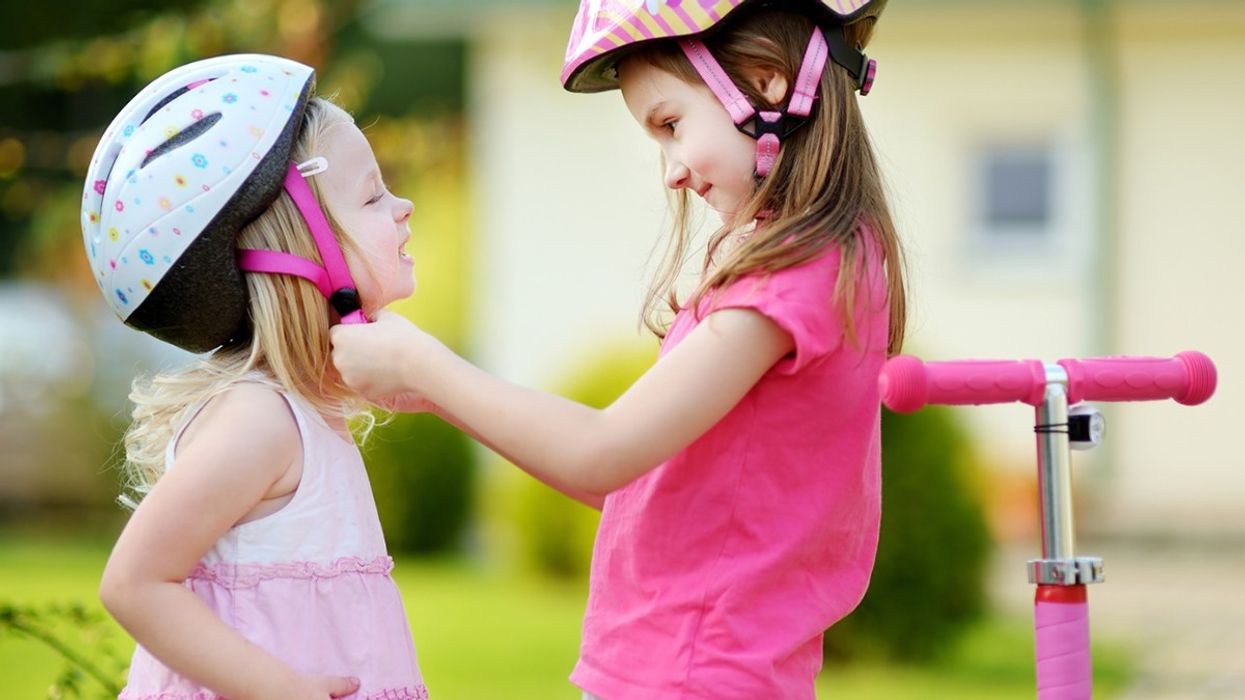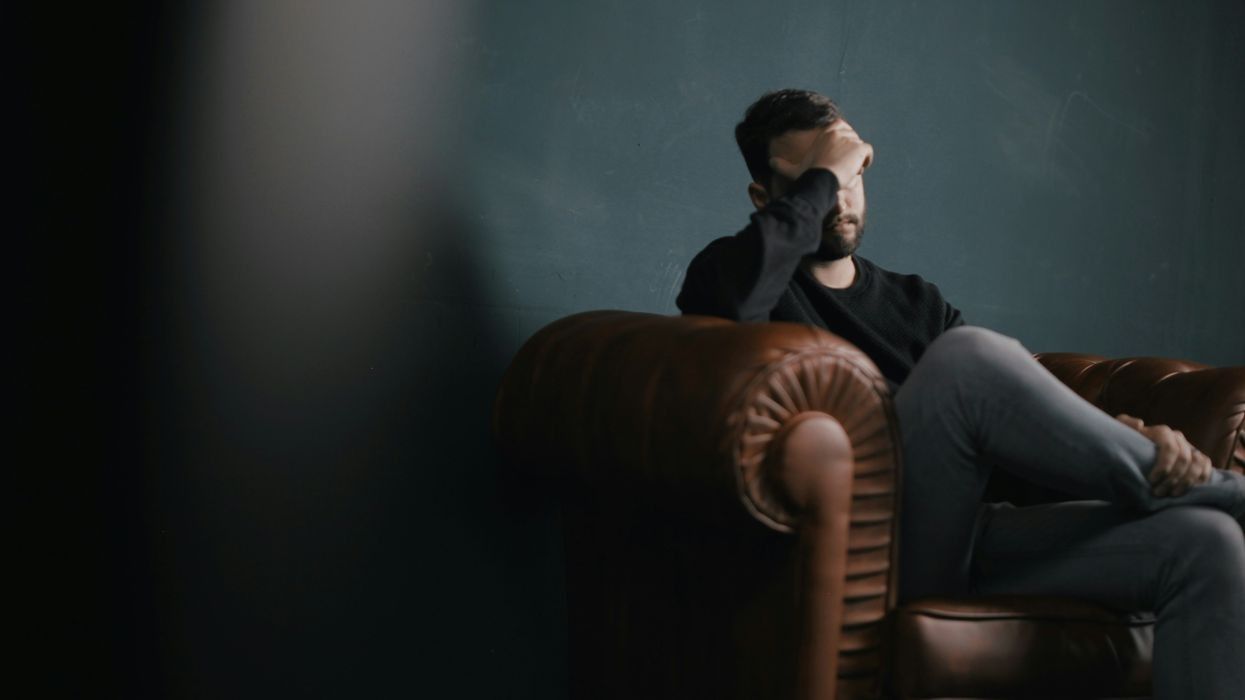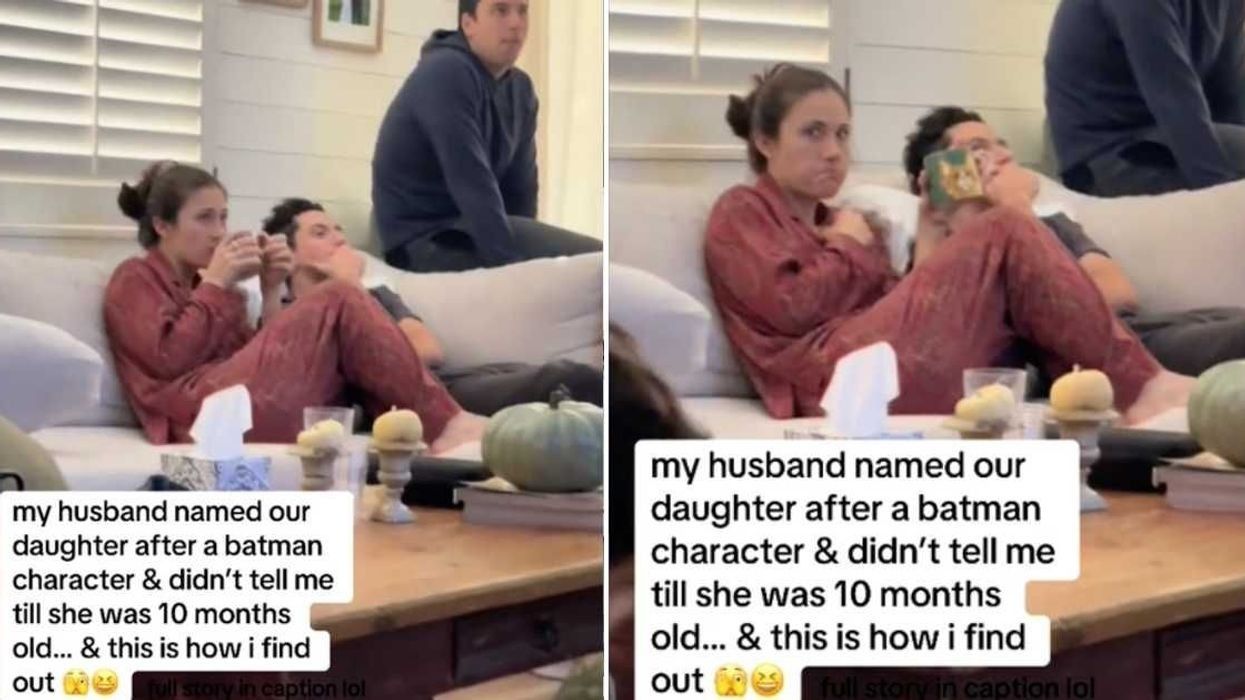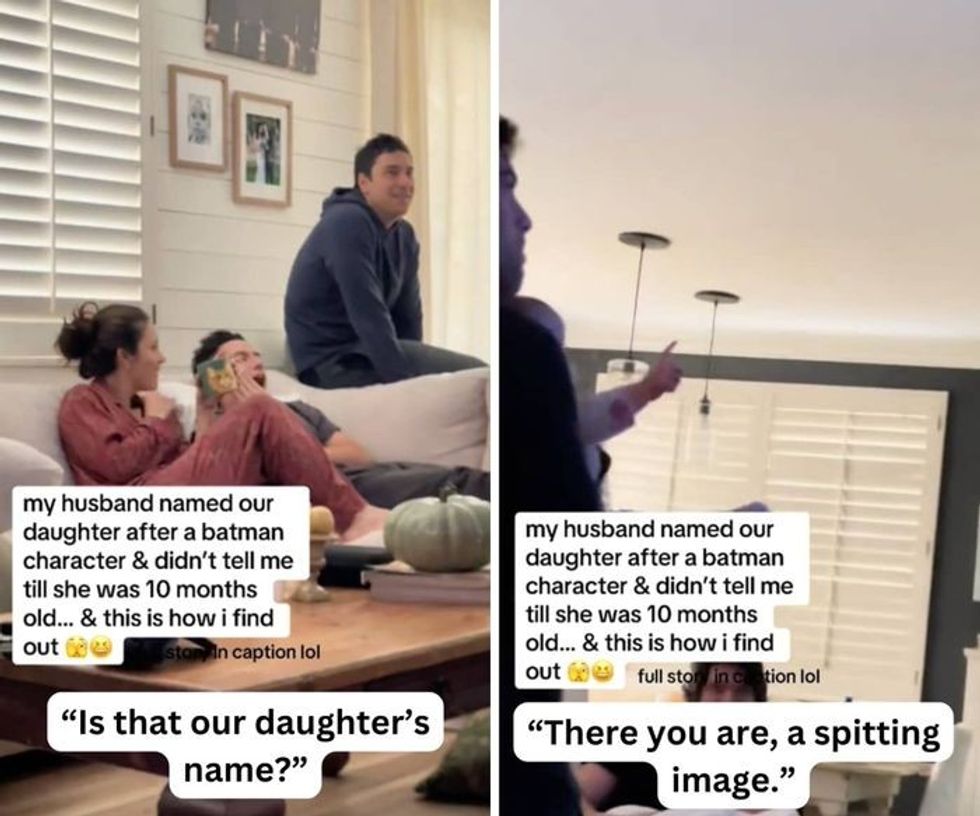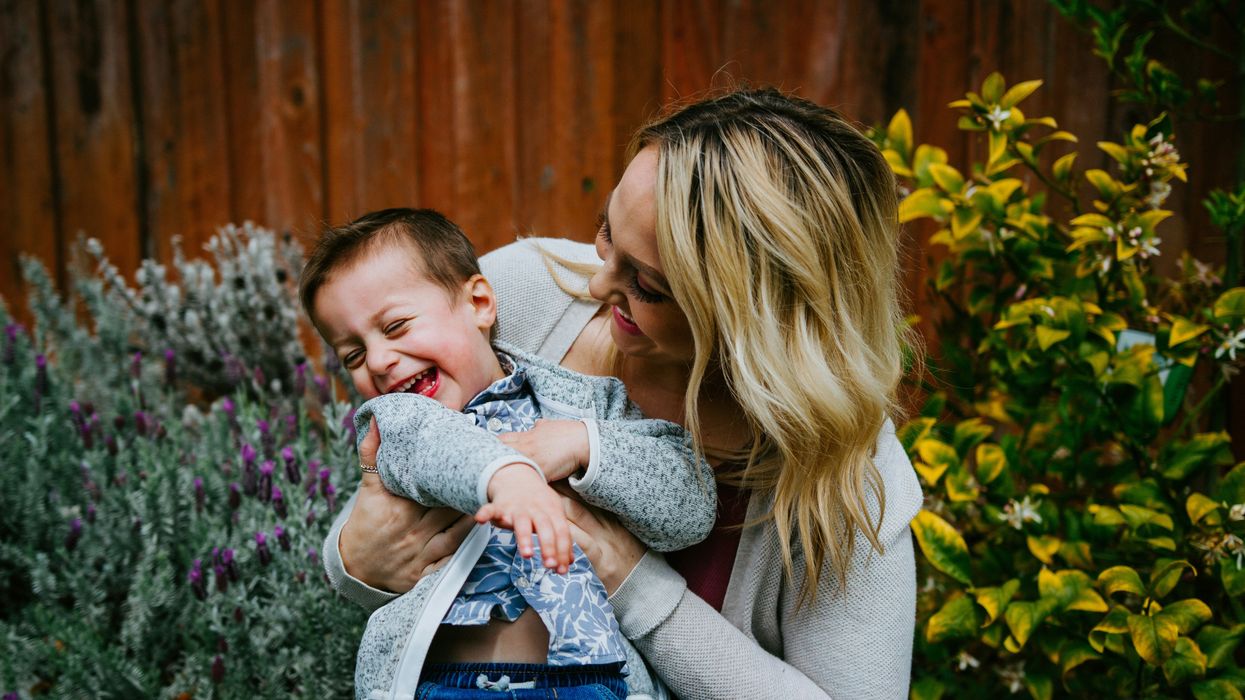Most parents strive to be fully present with their kids. However, most know it's not possible–even if you are a stay-at-home parent. Whether you are pulled away from your kids due to work, side hustles, or busy schedules, most parents admittedly fall short. But before you pile on the parental guilt, you can still have a huge impact on your kids by being fully present with them when you *are* together.
Which is why TikToker Sara Martinez (@itsmesaramartinezitsmesaramartinez), a first time mom with a toddler, shared an insightful parenting video with her followers on the most important times of the day to be present with your kids each day to have the biggest positive impact on them. "I always struggle with mom guilt and questioning if i was present enough," she captioned the video. "If this is true or not, I do find setting aside specific time to be present with my toddler (no phones out, etc) has made a positive impact."
The video opens with thoughts from Martinez as she plays with her toddler daughter. "I just read a theory that said: there are 9 minutes that have the greatest impact on a child's day. And I can't stop thinking about it. Those 9 minutes are: ...", and she goes on to explain.
@itsmesaramartinez I always struggle with mom guilt and questioning if i was present enough. If this is true or not, I do find setting aside specific time to be present with my toddler (no phones out, etc) has made a positive impact. #raisingkids #parenting #parentingtips #parentingtip #childpsychology #raisingtoddlers #toddlerparents #toddlermom #presentparenting #toddlermama #raisingchildren
The theory breaks up the 9 minutes into 3 different times of day for 3 minutes each. They include: the three minutes after they wake up, the three minutes after they get home from school or daycare, and the three minutes before they go to bed. In the video, Martinez shares a montage of herself and her daughter going through each of these moments. She can be seen waking her daughter up with a hug, followed by them sitting on the couch during the afternoon looking at a book together, and a final scene in a rocking chair in a nursery winding down the day with stuffed animal and another book.
And her followers had lots of appreciative comments. One wrote, "As a full time working mama, I NEEDED this. I carry so much guilt not being there for my babies around the clock. 🥺" Another added, "Oh my gosh I love this🥰 such a comforting theory for a working mom." And another viewer commented, "YES!!! I live by this! I’m not perfect but can try to be in THOSE 9 minutes🥹." And another shared, "This is everything😭 when I learned something similar it took so much pressure off/shifted my outlook so much💕."

Some were inspired to make changes after watching. "Really needed to hear the after preschool part because I’ve fallen in the habit of trying to immediately making dinner. She just needs my attention after 8 hours without me😭," one commented. "Wow this hit me. Reminder to slow down and the jobs can wait. 💖😭"
Other viewers noted that this advice is for everyone, not just kids. "Honestly that’s true for grown ups too, those are the best moments of the day," one wrote.





